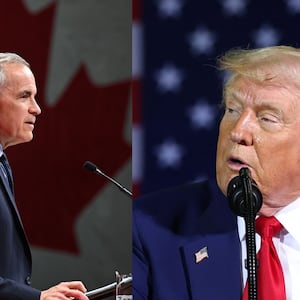Canada is “one of our nation’s greatest allies” and “greatest friends,” Minnesota’s U.S. Sen.
Amy Klobuchar said in early April. To those of us in Minnesota , she wasn’t divulging anything we didn’t already know. Minnesota’s top trading partner accounted for $7 billion in exports from our state in 2013 alone, and trade with Canada has an annual nationwide economic impact of $437 billion.

But Klobuchar wasn’t addressing Minnesotans; she was testifying on the Senate floor in support of a needed bipartisan bill to undo President Donald Trump ’s 10% tariff on energy from Canada and 25% tariff on north-of-the-border goods. Klobuchar is a co-sponsor of the bill along with five fellow Democrats, one Republican, and an independent. “This resolution is about drawing a line in the sand and saying (Trump) cannot abuse .
.. emergency powers to start an unjustified trade war,” Klobuchar testified .
“You cannot abuse your emergency powers to hurt one of the finest relationships in the world, the relationship between America and Canada. And you cannot drive up prices, eliminate jobs, and put in place a national sales tax.” Not technically a sales tax, but, as Klobuchar argued, after higher costs from tariffs on Canada are passed along and reach consumers, they will cost the average American family an estimated $5,000 a year — just like a new sales tax.
In addition, tariffs on Canada and Canada’s tariffs in retaliation could lead to a 1.6% decrease in total U.S.
gross domestic product, or GDP, and a 2.6% decrease in Canadian GDP, as the bi-national, mayors-led Great Lakes and St. Lawrence Cities Initiative determined.
Those percentages may sound small, we’re talking about an economic impact on the U.S. alone of more than $437 billion, the brunt of it felt by Minnesota, Wisconsin, and the other states bordering the Great Lakes and St.
Lawrence Seaway, as a Duluth News Tribune editorial in January pointed out. The Great Lakes region supports more than 50 million jobs that could be put in jeopardy by a duel of tariffs between the two nations, the initiative stated. “We (in Minnesota) do so much business with Canada that it is more than the total of our No.
2, No. 3, and No. 4 largest markets combined,” Klobuchar testified.
“We are the fourth-biggest ag exporter, the state of Minnesota, in the country. So, we know a little bit about how this works. .
.. Small farmers in my state that are already dealing with retaliatory tariffs, that are already dealing with the fact that Canadians who used to buy their stuff don't want to buy it anymore, or other countries aren't buying their stuff.
And what happens then, the Canadians look for other markets, and there's other countries, other manufacturers, other farmers, and other nations that say, ‘We are more than happy to fill your contract, sir’ (or,) ‘We are more than happy to help you out with that aluminum, ma’am,’ because of these tariffs.” As Chicago Tribune foreign-affairs columnist Elizabeth Shackelford wrote in early April, Trump’s tariffs “sounded reasonable. He was only imposing on other countries the burden they impose on us,” boosting our national revenue, decreasing our deficit, and driving manufacturing and production back to the U.
S. “The problem with the case he presented is that none of it is true,” Shackelford wrote. “His ‘reciprocal’ tariff numbers don’t match other countries’ tariffs but are derived instead from each country’s trade surplus with us.
Trump’s ‘reciprocal’ tariff against the European Union is 20%, for example, although the average EU tariff on U.S. goods is less than 3%.
...
Trump’s tariff income will not make us wealthier either because those tariffs are a tax on us. The costs aren’t absorbed by foreign countries or manufacturers that give up their profit margin. They will be paid by U.
S. businesses and consumers instead.” Clearly, trade relations between the U.
S. and Canada are critically important to economies in Minnesota, Wisconsin, and well beyond. No state — and neither nation — wins from lobbing tariffs on goods and services at one another.
The U.S. Senate passed Klobuchar’s bipartisan bill.
The U.S. House can follow suit — so all the economic good for Minnesota that comes from free trade with our neighbors to the north can continue.
.
Politics

Minnesota Opinion: For Minnesota's economic good, undo tariffs on Canada

From the editorial: "Trade relations between the U.S. and Canada are critically important to economies in Minnesota, Wisconsin, and well beyond. No (one) wins from lobbing tariffs."















